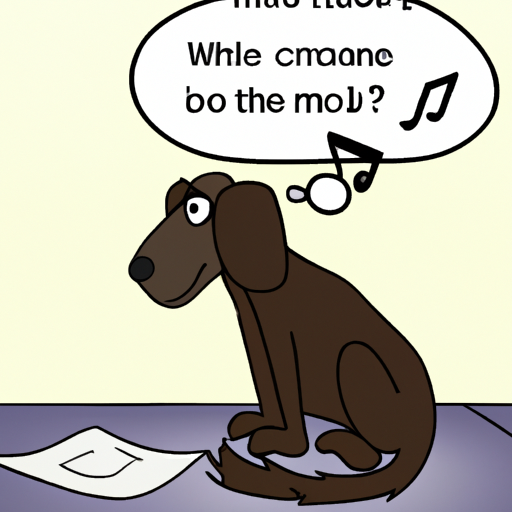Understanding Your Dog’s Language
Dogs, just like humans, have a unique way of communicating their feelings and needs. It’s not just about barks and tails wagging. They groan too. As a caregiver, you’re entrusted with the task of interpreting these sounds and understanding what they mean. It’s like learning a new language, full of complex tones, pitches, and frequencies, all delicately woven into a tapestry of communication.
Reasons Dogs Groan
There are several reasons why dogs groan. Here are the top five:
- Contentment: Dogs often groan when they’re content, much like how you might sigh after sinking into a comfy chair at the end of a long day.
- Stretching: Yes, dogs groan when they’re stretching! It’s their way of saying, “This feels so good!”
- Discomfort: If your dog seems to groan a lot and is exhibiting other signs of discomfort, it’s time to consult the vet.
- Soliciting Attention: Sometimes, your dog just wants your attention and a good petting session.
- Old Age: Just like humans, dogs groan more as they get older. It’s simply a part of aging.
How To Respond To Your Dog’s Groaning
As an attentive caregiver, it’s important to listen and react to your dog’s groans appropriately. Below is a table with some common scenarios and suggested responses:
| Scenario | Suggested Response |
|---|---|
| Your dog groans while stretching | Let them enjoy their stretch! |
| Your dog groans when you pet them | Keep petting! They’re loving it! |
| Your dog groans and seems uncomfortable | Check for any signs of injury or illness, and consult a vet if necessary |
| Your dog groans for attention | Give them the love and attention they crave |
| Your dog groans due to old age | Give them softer bedding and more comfort. Consult your vet for any necessary dietary or lifestyle changes |
The Importance Of Active Observation
Listening to your dog’s groans is just one part of understanding their communication. You also need to keep an eye out for other signs. Are they wagging their tail? Are their ears perked up? These little cues, combined with their groaning, can provide you with a wealth of information about what’s going on with your beloved pet.
Frequently Asked Questions (FAQs)
Q: Is groaning a sign of pain in dogs?
A: Not always, but if your dog’s groaning is accompanied by other signs of discomfort, it’s best to consult a vet.
Q: Do all dogs groan?
A: Yes, groaning is a normal behavior for dogs, though the frequency and reasons can vary.
Q: Is groaning a sign of old age?
A: Older dogs may groan more, but it’s not exclusively a sign of old age.
Q: Should I be worried if my dog groans a lot?
A: If your dog’s groaning seems excessive or is paired with other concerning behavior, reach out to your vet for advice.
Q: How can I tell if my dog’s groaning is a sign of contentment?
A: If your dog groans when you pet them or when they’re relaxing, it’s most likely a sign of contentment.
Remember, your role as a caregiver is to understand your dog’s unique language. Listening to their groans and interpreting them correctly can significantly enhance your bond with your furry friend.



